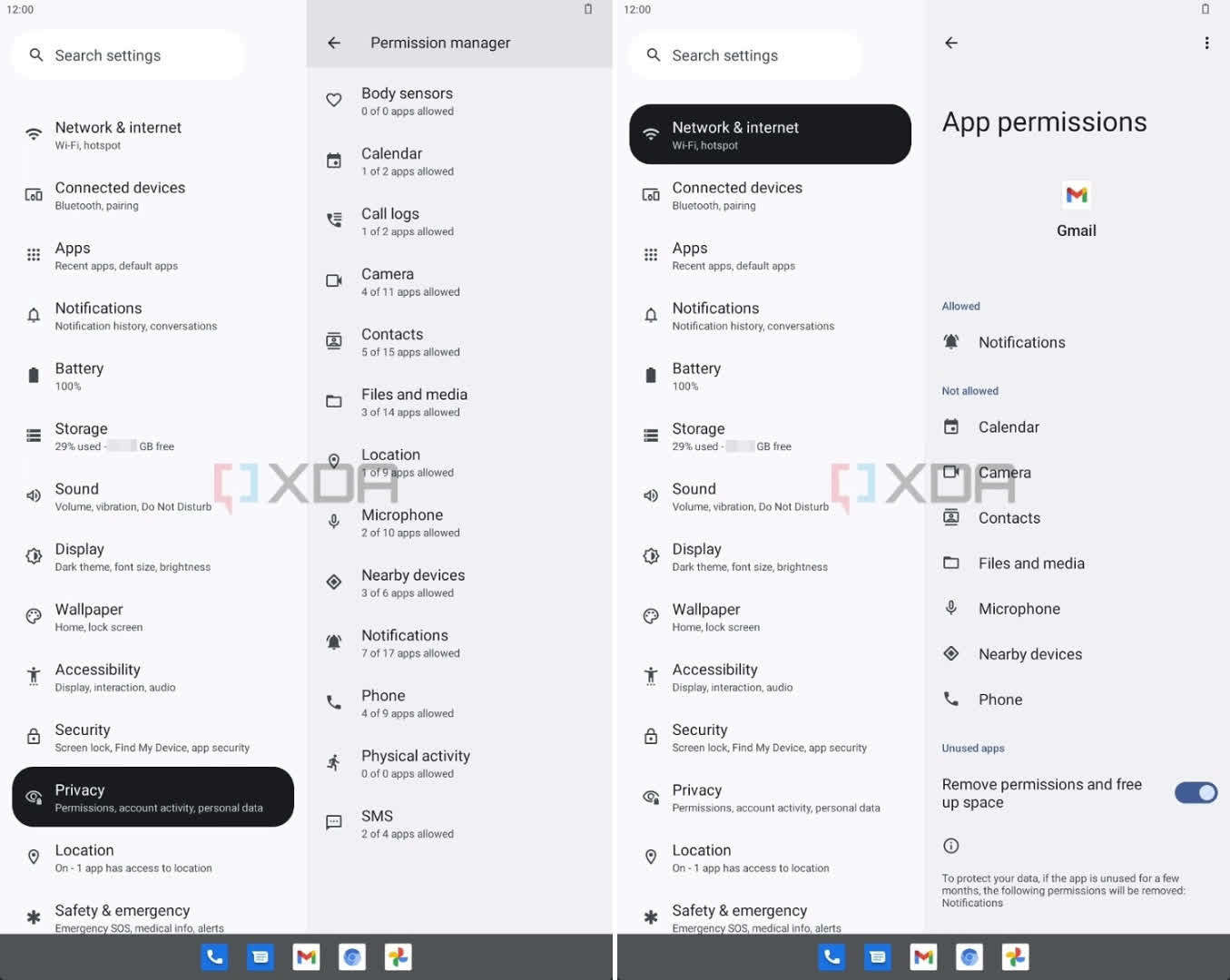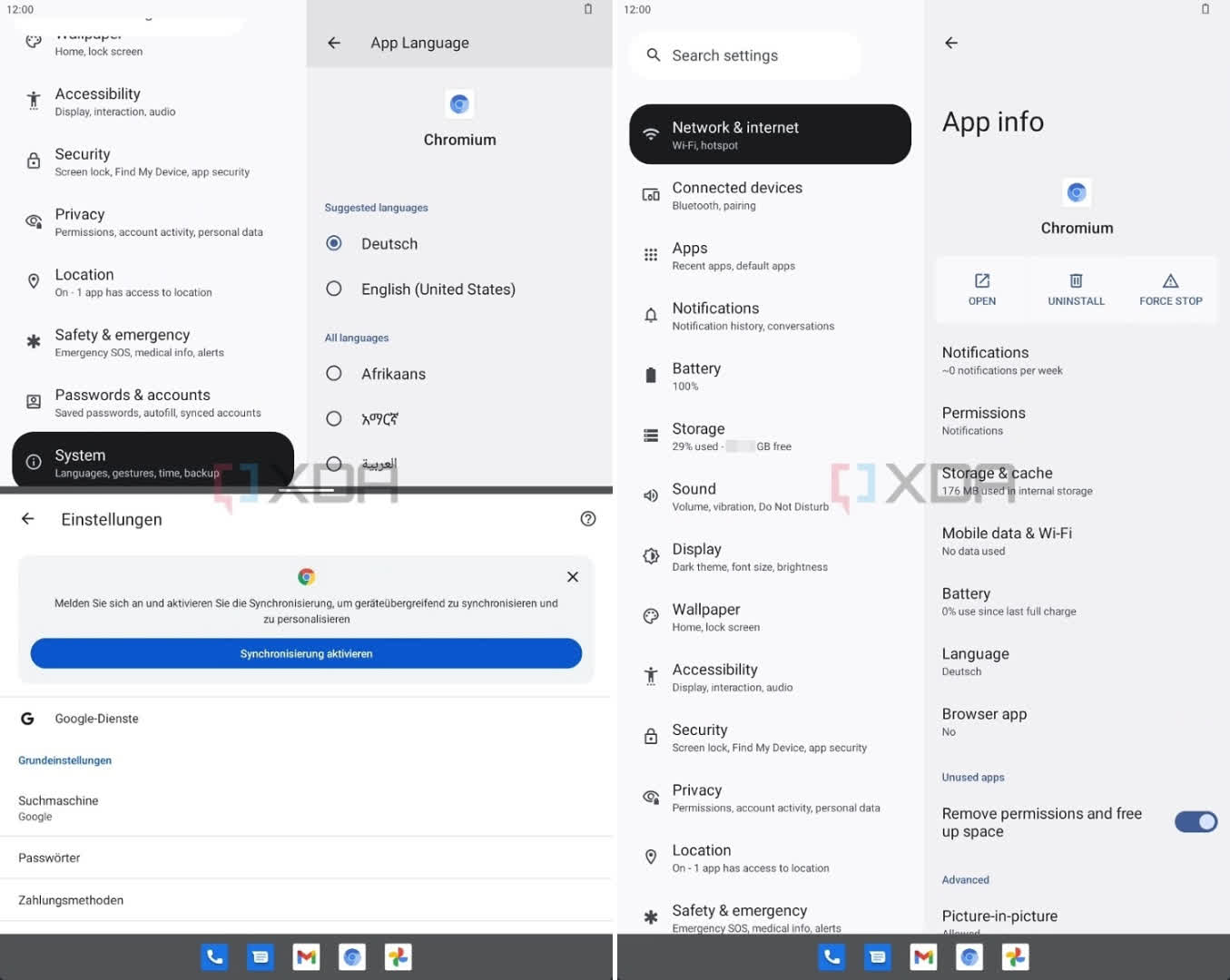Something to look forward to: Google's first developer preview of Android 13, codename 'Tiramisu,' is still a couple of months away, but leaked screenshots surfacing recently suggest several usability and quality of life improvements are coming as part of the next big release. Notably, Google is also bringing a new credit-based system for apps in order to optimize battery usage.
Android 12's visual overhaul with Google's Material You design language means the next version will mostly be a case of under the hood improvements and features. We can likely expect the first Android 13 Developer Preview to drop by February, however, leaked screenshots of an early build shared by XDA Developers detail some of the features Google is currently working on.
One of these is the ability to set a language for individual apps, a benefit to multilingual users who can, for instance, set their shopping/grocery app to their local language without affecting the rest of the system.
While some apps currently support multiple languages under their own settings, Android 13's native, per-app implementation is part of Google's 'Panlingual' feature that's likely to see much wider use once it becomes available.

Another upcoming feature is the addition of runtime permissions to app notifications for reduced spam and less distraction. Android already has a robust system in place to tackle notifications by priority and type, and can also block them outright.
However, this newer implementation suggests a simpler, yet more powerful approach for concerned users that lets them enable/disable app notifications similar to how other permissions like Camera, Location, or Microphone are handled.

While the ever-present concern for battery life continues to be addressed with bigger capacity packs, Google aims to bring another battery optimizing software feature called "The Android Resource Economy" or TARE.
This feature essentially balances app usage with battery life by making use of existing Android APIs and services to award credits to apps based on battery level.

In addition to active and passive battery preserving measures already in place, TARE could potentially lead to longer times between charges as developers further optimize their apps (or are motivated) to make efficient use of these credits, resulting in less power draw.
Android users can expect more interesting new discoveries as codename Tiramisu's first developer preview nears its release sometime in mid-February.
